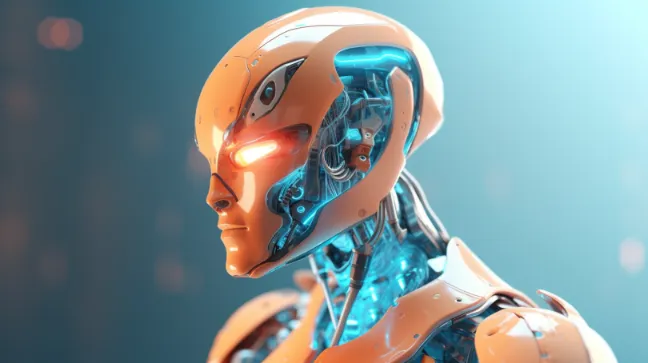How Can AI Benefit Everybody?
Artificial Intelligence (AI) is a broad term that refers to the development of computer-based systems that can perform tasks that typically require human intelligence, such as perception, reasoning, and decision-making.
AI has become increasingly important in our daily lives, and its benefits are numerous.
AI in Everyday Life
AI has already started to revolutionize various sectors, including healthcare, education, entertainment, and transportation. In healthcare, AI is being used to develop intelligent systems that can diagnose diseases, analyze medical images, and even suggest treatment options.
In education, AI-based systems are being used to create personalized learning experiences that adapt to individual student needs. In entertainment, AI is being used to create more immersive gaming experiences and to develop more advanced virtual assistants.
In transportation, AI is being used to develop autonomous vehicles that can reduce accidents and traffic congestion.
AI in Business
AI is also transforming the business landscape. In customer service, AI-based chatbots are being used to provide instant support to customers, while in marketing, AI is being used to analyze customer data and provide personalized recommendations.
In finance, AI is being used to develop predictive models that can identify fraud and improve risk management. In logistics, AI is being used to optimize supply chain operations and improve delivery times.
AI and Job Market
The impact of AI on the job market is a topic of debate. While some fear that AI will replace human workers, others argue that it will create new job opportunities. AI is already creating new roles in the tech industry, such as data scientists and AI engineers.
Additionally, AI is expected to create new job opportunities in industries such as healthcare, finance, and transportation.
Ethical Considerations
As AI becomes more prevalent, there are concerns about bias, privacy, and responsibility. AI systems can perpetuate bias if they are trained on biased data. Privacy concerns arise when AI systems collect and analyze personal data.
Developers have a responsibility to ensure that their AI systems are ethical and unbiased.
AI for Everybody: The Democratization of Technology
The concept of AI for everybody isn’t merely a futuristic notion, it’s a reality we’re gradually transitioning into. It signifies the democratization of AI, making this transformative technology accessible and beneficial for all. This is not just about the integration of AI into various sectors but its ubiquity, bringing about radical changes at a grassroots level.
AI for everybody can have profound implications for social and economic inclusivity. It could potentially bridge the digital divide and facilitate equal opportunities.
For instance, AI could help enhance educational outreach in remote and underprivileged areas, offering personalized learning experiences that adapt to every individual’s unique abilities. Similarly, in healthcare, AI-powered telemedicine could make quality healthcare services more widely available.
Furthermore, AI for everybody is not just about consumption of AI-based services, but also participation in the creation and development of AI technologies. T
he advent of easy-to-use AI tools and platforms has empowered people from diverse backgrounds to create AI solutions that address local, community-specific problems. This fosters a more inclusive AI ecosystem that’s not solely controlled by a few tech giants or confined to tech-savvy users.
At the same time, the narrative of AI for everybody underscores the importance of AI literacy. To maximize the benefits and mitigate the risks of AI, everyone needs to have a basic understanding of this technology, its potential applications, and its ethical implications.
Indeed, AI for everybody brings opportunities, but it also presents challenges. It necessitates careful consideration of issues like privacy, bias, and security.
It also highlights the need for robust regulatory frameworks to ensure that as AI becomes more ubiquitous, it serves the common good and respects everyone’s rights. It is a journey towards a more equitable future, facilitated by AI.
This is a testament to the extraordinary power of AI, a tool for progress that, when wielded wisely, can transform societies and elevate lives globally.
Conclusion
AI has the potential to benefit everyone, from improving healthcare to transforming the way we work. However, it is important that AI is developed and used responsibly.
Developers must ensure that their AI systems are ethical and unbiased, and that they do not infringe on individuals’ privacy. With responsible development and use, AI can continue to revolutionize our daily lives.






